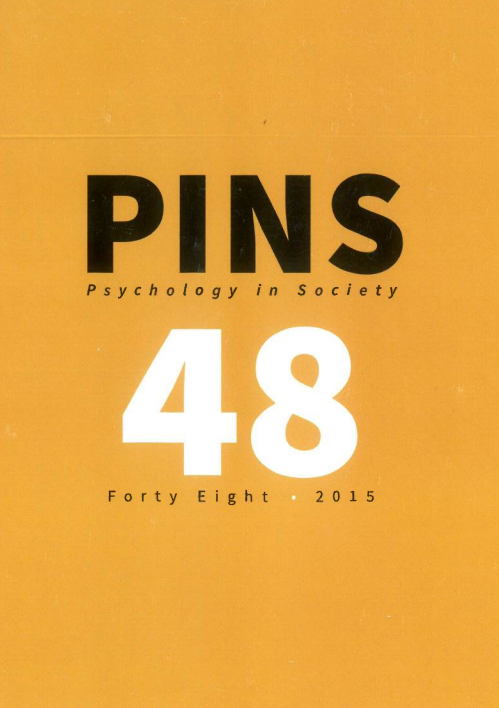Cross-cultural differences in the character strength of citizenship in South Africa
DOI:
https://doi.org/10.17159//2309-8708/2015/n48a2Keywords:
citizenship, cross-cultural, Africa, South Africa, character strengthsAbstract
The psychological conceptualisation of the character strength of citizenship as a trait ubiquitous across cultures is examined within the context of a diverse South African sample. The theoretically supposed elements common to the definition of citizenship as a dispositional trait (rather than a situational or cultural phenomenon) are examined by means of considering Peterson and Seligman’s (2004) conceptualisation of citizenship as espoused in their work on character strength and virtues. Using the Rasch model of item response theory the International Personality Item Pool (IPIP) Value in Action Inventory (VIA) Citizenship scale was examined for fit and differential item functioning (DIF). A diverse sample of 902 South African university students who completed the Citizenship scale was examined for DIF as a function of self-asserted ethnicities and home language groups, which serve as indicators of culture within the South African context. The findings of the study suggest that while certain conceptual aspects of trait-based citizenship as espoused by Peterson and Seligman (2004) are common across the heterogeneous cultures (as defined by ethnicity and language group) examined, there is sound evidence that there are also qualitative distinctions that are exclusively a function of cultural grouping, suggesting difficulties with the exclusive conceptualisation of citizenship as an individual trait. The implications of these findings speak to the importance of considering citizenship as a nuanced and complex notion that requires further consideration in terms of the philosophical, theoretical and empirical qualification of its conceptualisation.
Downloads
Published
How to Cite
Issue
Section
License
This journal is an open access journal, and the authors' and journal should be properly acknowledged, when works are cited.
Authors may use the publishers version for teaching purposes, in books, theses, dissertations, conferences and conference papers.
A copy of the authors’ publishers version may also be hosted on the following websites:
- Non-commercial personal homepage or blog.
- Institutional webpage.
- Authors Institutional Repository.
The following notice should accompany such a posting on the website: “This is an electronic version of an article published in PINS, Volume XXX, number XXX, pages XXX–XXX”, DOI. Authors should also supply a hyperlink to the original paper or indicate where the original paper (http://www.journals.ac.za/index.php/pins) may be found.
Authors publishers version, affiliated with the Stellenbosch University will be automatically deposited in the University’s’ Institutional Repository SUNScholar.
Articles as a whole, may not be re-published with another journal.
The copyright of the article(s) lies with the author(s).
The copyright of the journal lies with PINS-psychology in Society.
The following license applies:
Attribution CC BY-NC-ND 4.0 - https://creativecommons.org/licenses/by-nc-nd/4.0/

